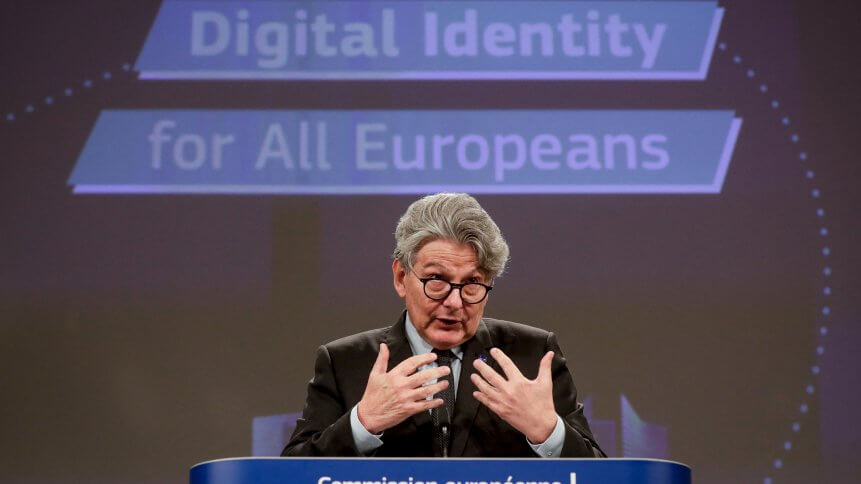EU to unveil Digital ID for secure identity verification post-pandemic?

- The Commission has suggested creating a digital wallet, effectively a form of ID, that can be used across all 27 EU member states to access public services or store documents
- Users will be able to access online services with their national digital identification, which will be recognized throughout Europe
- The use of the European Digital Identity wallet will always be at the choice of the user
As the general population veers more towards the direction of a digital economy, so have countries begun to make strides towards solidifying digital identity on a device, also commonly referred to as a digital ID. Even before the pandemic, our society had already evolved in sufficient complexity, to have created a need for self-sovereignty in identity. The most recent to make marked strides in this area is the European Union (EU) bloc.
On June 3, 2021, the European Commission proposed a framework for a European Digital ID which will be available to all EU citizens, residents, and businesses in the EU. The new European Digital Identity Wallets will enable all Europeans to access services online without having to use personal identification methods, or unnecessarily sharing unsecured personal data. With this solution, users will have full control of the data they share.
Prior to this, several member states already provided digital forms of identity, so the proposed new app would interact with existing systems while providing EU citizens with the right to a service that is recognized across the bloc. The wallet would not be obligatory.
How will the Digital ID function?
Under the new regulations, member states will offer citizens and businesses digital wallets that will be able to link their national digital identities with proof of other personal attributes. Documentation samples include driving licenses, diplomas, and bank accounts. These wallets may be supplied by either the public or private sectors, provided they are recognized by a Member State.
According to the Commission, EU citizens will be able to prove their identity and share electronic documents from their European Digital ID wallets with the click of a button on their smartphones. They will be able to access online services with their national digital identification, which will be recognized throughout Europe. All large platforms will be required to accept the use of European Digital ID wallets upon request of the user, for example, to prove their age.
Above all, the use of the European Digital Identity wallet will always be at the choice of the user. In short, the European Digital ID will be available to anyone who wants to use it in the EU – be it a citizen, resident, or business owner.
“To make it a reality as soon as possible, the proposal is accompanied by a Recommendation. The Commission invites the Member States to establish a common toolbox by September 2022 and to start the necessary preparatory work immediately. This toolbox should include the technical architecture, standards, and guidelines for best practices,” the Commission stated.
Objective and outlook
Through the Digital Europe Programme, the Commission will support the implementation of the European Digital Identity framework, and the many member states have foreseen projects that will include the implementation of the e-government solutions, including the European Digital ID in their national plans under the Recovery and Resilience Facility.
The Commission’s 2030 Digital Compass includes a number of targets and milestones which the European Digital ID will help achieve, including, all key public services should be available online by 2030, all citizens will have access to electronic medical records, and 80% of citizens should use an eID solution within that time frame.
Commissioner for Internal Market, Thierry Breton said, “EU citizens not only expect a high level of security but also convenience whether they are dealing with national administrations such as to submit a tax return or to enroll at a European university where they need official identification. The European Digital ID wallets offer a new possibility for them to store and use data for all sorts of services, from checking in at the airport to renting a car,” he said, adding that it is about giving a choice to consumers, a European choice.
“Our European companies, large and small, will also benefit from this digital identity, they will be able to offer a wide range of new services since the proposal offers a solution for secure and trusted identification services,” he added.










